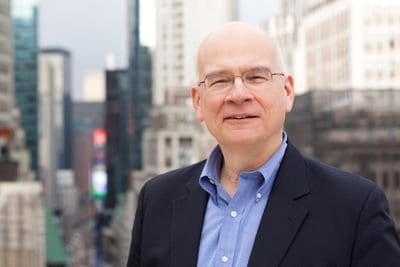Last week, in response to Alexander Lang’s article on his reasons for leaving parish ministry, I wrote an article outlining the reasons I am not leaving. Both articles sparked a fair amount of conversation. And another article posted later in the week suggested that the reason behind the flurry of pastoral resignations can be explained in terms of moral injury and trauma.
Trying to understand the trend is an admirable effort and trauma may explain some isolated cases of resignation. Heaven knows there are churches that are clergy-killers. And pastors can find themselves serving churches or bishops that are abusive.
The author of the article was attempting to explain the whole of the resignation trend and was responding, in particular, to Lang’s article. But cases like Lang’s are not so easily explained by referring to moral injury and trauma. Lang complained that he couldn’t go on memorizing sermons. He was exhausted by learning things of an intimate nature about the lives of his parishioners. And he couldn’t go on trying to satisfy all of his “bosses” – i.e., his parishioners. These factors are not the product of trauma. They are the product of bad choices and a deficient ecclesiology. And labeling them as a product of moral injury and trauma misdiagnoses the problem and trivializes the terms used.
The more probable explanation for Lang’s resignation and others like it is a lack of spiritual and pastoral formation. That is certainly the case in subsequent interviews with Lang himself, who cites perfectionism, growing doubts about major tenets of the Christian faith, and his effort to center the faith of his parishioners in understandings of the spiritual life outside the church as major factors in his own decision to resign.
There is no way to insure that pastors like Lang will not have an experience of this kind. Left unaddressed, it is not hard to see why he left the church. But labeling the problem as moral injury and trauma will not help the church address the challenge of resignations. The more reliable path is modifications to the ordination process and the education that pastors receive – or perhaps more accurately, the education that they don’t receive.
A contributing cause to this situation is the long-standing breakdown in the relationship between churches and seminaries. Particularly in the Protestant world, churches retained responsibility for the ordination process but entrusted the educational process to seminaries. This might seem like a reasonable distribution of responsibilities but, in fact, the compartmentalization of the process has ensured that formation rarely happens at all. As a result, pastoral and spiritual formation ends up being the responsibility of the pastor who, under duress, scrambles to get it done. The experience for clergy ends up being a bit like building and flying an airplane at the same time.
How does this happen?
Well, on the one hand, churches don’t typically take responsibility for formation. They test to see if pastors have been formed. If candidates for ordination don’t pass that test, they are jettisoned from the process; and would-be clergy are often never told why they didn’t “make the cut”. Instead, they assume that the seminaries will shoulder that task.
In spite of this, however, seminaries don’t pay much attention to the task of formation either, and, if they do, it is confined to a course or two. It is rarely, if ever the subtext of a theological education, as you might suppose it would be.
There are many reasons for this state of affairs:
One, seminaries no longer see themselves as responsible to the church in any real sense of the word, and churches don’t take time to engage seminaries in a conversation about what pastoral and spiritual formation looks like. To be sure, churches are customers of the seminaries, in that they are often the conduit for students to seminaries but the relationship usually ends there. The distance between the lives of the two institutions is also exacerbated the attitude of denominational leaders. Most judicatories are not interested in what transpires in seminaries. Seminary educations represent an expense that most denominations avoid taking on and those that once did are now divesting themselves of that effort.
Two, seminaries surrendered the task of formation long ago. They aren’t staffed for it. A considerable number of seminary faculty have no pastoral experience. Some don’t go to church. Others aren’t sympathetic to the creeds of the church. And, in any event, the professional consciousness of seminary faculty is often shaped by the academy, not by the church.
Three, even if seminaries were staffed for that task, there are such divergent points of view at work in seminaries that it is all but impossible to agree on what formation should look like.
And, four, as seminaries try to market the Master of Divinity to a wider cohort of students, the degree is no longer focused on pastoral ministry at all in some seminaries. So, it has become impossible to talk in any coherent fashion about the kind of clergyperson a seminary education produces.
Why would the absence of an emphasis on formation be important in explaining the “Great Pastor Resignation”? Because how you understand the vocation of pastoral minstry and the way in which you prepare for it either helps you to navigate it effectively or leaves you vulnerable to a host of struggles, disappointments, and disillusionment.
Think of it this way: David Bridges, an authority on institutional transitions, makes an important distinction between being disenchanted and disillusioned. Those who are disillusioned by an experience are often disillusioned because they approach jobs, institutions, and relationships with an enchanted sense of what they will happen.
In the case of Lang’s article, for example, disillusioned pastors might imagine that they will have time to memorize sermons. They assume that they will be able to help people without being vulnerable to their struggles. And they also assume that they will be able to please everyone. (Lang seems to have assumed that he could do all of this without believing in much of what is basic to the church’s theology.) Bridges notes that people who hold onto enchanted beliefs of this kind are disillusioned and – instead of taking those magical assumptions into consideration – they insist that something must be wrong with the experience. The only solution is to move to another church or resign altogether.
By contrast, Bridges notes, the disenchanted take their magical assumptions about an experience into consideration before they choose a course of action. They become more realistic. They modify their expectations. And, then, they decide whether they are in the right place.
They may still conclude that they are in an untenable position. They might find themselves in a congregation that is disordered and hostile. They may conclude that the church they are being asked to serve has already decided to die and can’t be recovered. They may realize that they are not prepared spiritually or professionally. They may realize that they do not believe in the vows they were asked to take.
But they make those decisions after they factor-in their enchantment about the possibilities. As a result, they may also discover that the struggle that they are having is rooted in their expectations, not in the experience itself.
Sound pastoral and theological formation can’t insure that there won’t be people who still resign, mid-vocation. But if seminaries did treat the process of education as a formative task and if churches worked with them to reinforce that effort, then clergy would be less likely to make magical assumptions about pastoral ministry and/or be caught off guard. They would have a sound understanding of what the church is, as the body of Christ. And – if they were fully formed, they would also be centered spiritually. Preparation of that kind not only enables clergy to do what they are called to do, they are also better prepared to say “no” to those things that they are not called to do.
Like so many clergy, I’ve joked for years about “Things that they didn’t teach in seminary”. It has been a useful label for the unexpected, for a few things that can’t be taught in a classroom, and for some things that no one can learn – clairvoyance, chief among them. But I’ve concluded that the joke is also an indictment of seminary education. To be sure, no curriculum can anticipate everything that will happen in any ministry. But the nearly complete absence of the effort to form seminarians has left pastors with very little idea of the opportunities, joys, and challenges of parish ministry or the resources to meet its demands. Nor do seminaries make a concerted effort to help students cultivate a relationship with the living Christ that would sustain them in their ministries.
Whatever the other factors at work in the “great pastor resignation”, the absence of the effort to form clergy all but ensures that some will walk away, never fully aware of what God longs to give them and the congregations they serve. It’s time for a new vision for seminary education that embraces the pastor’s vocation wholeheartedly and holistically, from the beginning to the end. There will always be pastors who don’t stay the course, and some will have good reason to resign. But seminaries and the church should do everything in their power to keep them from experiencing unwarranted disillusionment.
Photo by Romain Dancre on Unsplash














